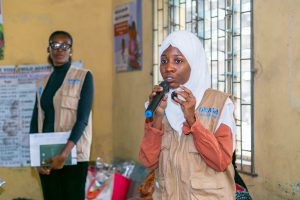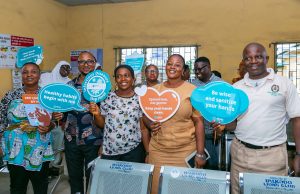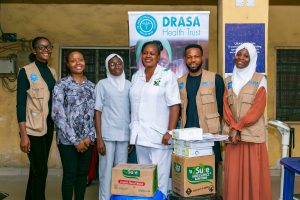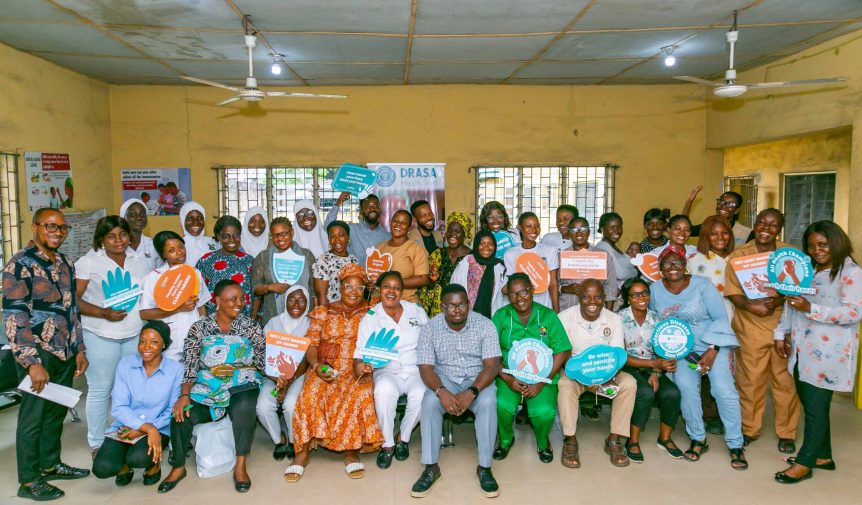Up to 90% of health services needed by a person in a lifetime can be provided by a Primary Healthcare Centre - USAID
Earlier this year, we toured the Ibeju-Lekki Local Government Area (LGA) of Lagos state, training and building the capacity of primary healthcare workers on Infection Prevention and Control (IPC). We promised to extend this training to other primary healthcare centers (PHCs) in other local government areas, and we did so in the Ikorodu LGA of Lagos. This densely populated region relies heavily on PHCs as the first line of care, especially in underserved areas where access to comprehensive medical facilities is limited.

Establishing Contacts
Primary Health Care Centers (PHCs) serve as the first point of contact for community members in urban areas who face challenges accessing major health facilities due to distance. These centers serve as “first-aid” options in ensuring the community members are safe from diseases. However, a lot of times health workers at these first points of care lack adequate knowledge of Infection Prevention and Control (IPC) to effectively manage the spread of infections in the facilities, leading to an increase in healthcare-associated Infections (HAIs). In fact, a 2021 survey conducted across 141 PHCs in Nigeria revealed that none had met the recommended IPC standards to properly manage infection spread.
Understanding the importance of increased knowledge of IPC in reducing HAIs, we conducted our education sessions at Emmanuel Oshinowo Children's Centre and Ipakodo Primary Healthcare Centres in Ikorodu LGA, Lagos State. The initial conversations we held with the PHC authorities and management teams helped us better understand the unique challenges faced by each PHC. Thus, helping us tailor our training to bridge the identified gaps.

Training and Practicing
We trained workers across all levels of healthcare (nurses, midwives, doctors, health attendants, community health extension workers, medical laboratory scientists, medical records officers, and cleaners) to improve their IPC knowledge. Our training sessions covered important areas about germ transmission, hand hygiene, appropriate handling and disposal of personal protective equipment (PPEs), and effective cleaning strategies for performing environmental sanitation in the PHCs.
We conducted interactive sessions where participants engaged in practical demonstrations of what they had been exposed to during the training. They practiced key activities like donning and doffing gloves and the handwashing steps, reinforcing and boosting the knowledge gained.

Making Learning Fun and Lasting
To make the training memorable, we hosted our Hand Hygiene Cafe session where we reinforced the learning of the participants by testing their knowledge and retention in a fun and interactive manner. They took pictures with props that held key messages while taking their hand hygiene pledge, promising to uphold safe hygiene practices in their various roles within the PHC.

In the words of one of our participants at Ipakodo PHC, “I have learned a lot about hand hygiene and IPC measures but what was significant for me was the 5 steps of handwashing. From now on, I will be a front runner for handwashing by educating my patients and encouraging my colleagues to promote hand hygiene practices.”

We aim to develop more Health Champions, who will enhance awareness of IPC practices in their health facilities. These champions will work across various Primary Healthcare Centres in different local government areas throughout the state, helping to protect their facilities and communities from healthcare-associated infections (HAIs).




